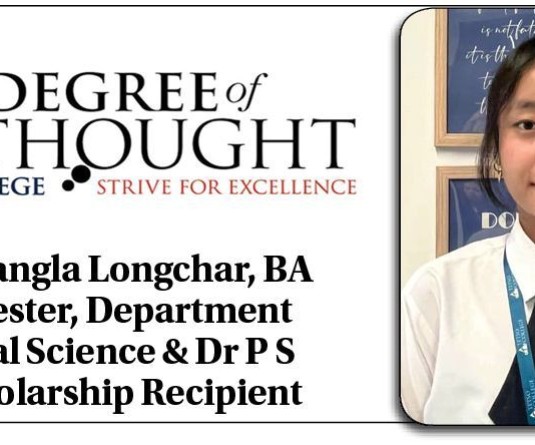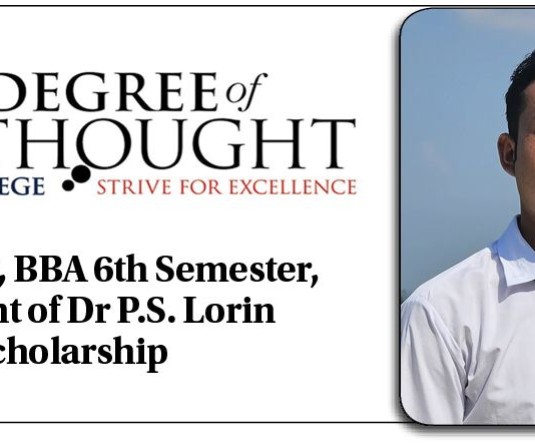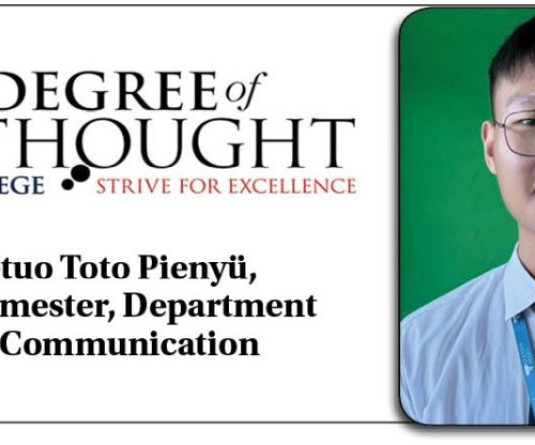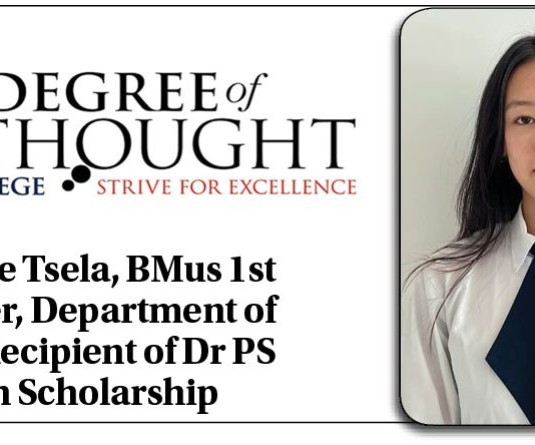
My mother once shared a piece of profound advice: “To grow, you have to fall and you have to start from the bottom.” For me, wisdom means drawing from knowledge and life experiences and using them in the present to create better outcomes. Since childhood, I have always been someone who eagerly learns from my personal experiences. Life has trained me to think constructively in all kinds of situations by relying on my self-gained wisdom. However, I was unaware that what I was applying was what people often refer to as wisdom.
Through many challenges and struggles, it was my mother who consistently shared her insights with me and my siblings. I’ve always paid close attention to her words. There were times, however, when accepting her advice and following through with her instructions felt burdensome. As a young boy desiring freedom and a life without pressure, this guidance sometimes felt too much. Still, I came to understand something even at that age—I had to listen to my inner voice too, the one that speaks from my own lived experiences. While I felt controlled at times, I now recognise that being compassionately supported and gently guided by my mother was truly a gift. No matter what decisions I made, she would always offer her wisdom, and that has continually helped me in my journey.
Our generation—Generation Z—often tends to ignore our elders when they give advice, believing they are from a different time, the so-called millennial era, with a lifestyle that does not match ours. While it’s true that the lives they led were different, we should not overlook the fact that they came before us and have endured the raw realities of life. They intend to pass down lessons that can help the next generation make wiser, more informed choices, but we often dismiss this. The wisdom of our elders holds incredible value and should not be underestimated. It helps us open our eyes and minds to various perspectives in life, be it positive or negative.
However, this does not mean we should blindly accept everything they say. Not every piece of advice or every elder's intention stems from a positive place. Sometimes, advice disguised as good can lead us into negative thinking, misjudged as beneficial. It is essential that each person reflects on their journey and learns to listen to themselves before taking any action.
The collective intelligence of different opinions can be valuable in forming a broader understanding, but it’s important to carefully consider whose advice is worth accepting. Trusting others isn’t easy—it takes time and patience. While we often receive guidance from parents, family, or friends with good intentions, it’s essential to find one trustworthy and relatable person with whom we can share and exchange wisdom. Such a connection strengthens emotional bonds and encourages compassion. When we put ourselves in someone else's shoes, we begin to understand their experiences and feelings more deeply. This not only leads to more meaningful relationships but also helps build a kinder, more empathetic community.
At times, people’s opinions may lack validity, and among those offering advice, some will genuinely want us to succeed while others may not. This is why it is essential to think wisely and respond thoughtfully without creating unnecessary conflict, as such situations can lead to uncertain and potentially damaging outcomes. Therefore, it becomes even more important for individuals to stay grounded in the present moment, assess their circumstances carefully, and take away lessons from them. While wisdom can certainly be gathered from others, it is ultimately our own decision whether or not to apply that wisdom in our lives. Additionally, it is vital to recognise and set aside self-righteousness, as clinging to it can often lead to personal setbacks and missed growth opportunities.
Throughout our lives, we undergo a wide range of experiences that shape us, though every person’s journey is uniquely different. Not everyone gains awareness of their mistakes early on—many are still navigating different phases of growth. Some may not have anyone to guide or support them, making the process more challenging. Nevertheless, people must learn to awaken their minds, shift their perspectives, and develop adaptability so that they can grow by learning from the lives of others. Even if we lack elders in our lives, we can still observe and learn from those whose actions inspire us to become better individuals.
Many people are still learning and gradually stepping out of their comfort zones. So, when a young person seeks advice from elders who lack life experience and are still figuring things out, the guidance may fall short. That’s why it’s important to carefully observe and choose people whose mindset and experiences align with our own goals. Genuine wisdom and the right perspective help us view situations more clearly, making us more cautious and thoughtful in our decisions. This not only leads to wiser choices but also leaves a positive impression on others. In today’s world, having wisdom is essential—it fosters maturity in how we handle conversations, challenges, and life decisions.
Asking for help and seeking wisdom should never be seen as a sign of weakness or something to be ashamed of. It reflects a strong desire and passion to improve and become a better person who can make thoughtful decisions, especially in difficult moments. Gaining wisdom helps shape us into more understanding and capable individuals. It encourages personal growth and development, not just of our thinking but of our overall personality and how we engage with the world around us.
Degree of Thought is a weekly community column initiated by Tetso College in partnership with The Morung Express. Degree of Thought will delve into the social, cultural, political and educational issues around us. The views expressed here do not reflect the opinion of the institution. Tetso College is a NAAC Accredited UGC recognised Commerce and Arts College. The editorial team includes Chubamenla, Asst. Professor Dept. of English and Rinsit Sareo, Asst. Manager, IT, Media & Communications. For feedback or comments please email: dot@tetsocollege.org






